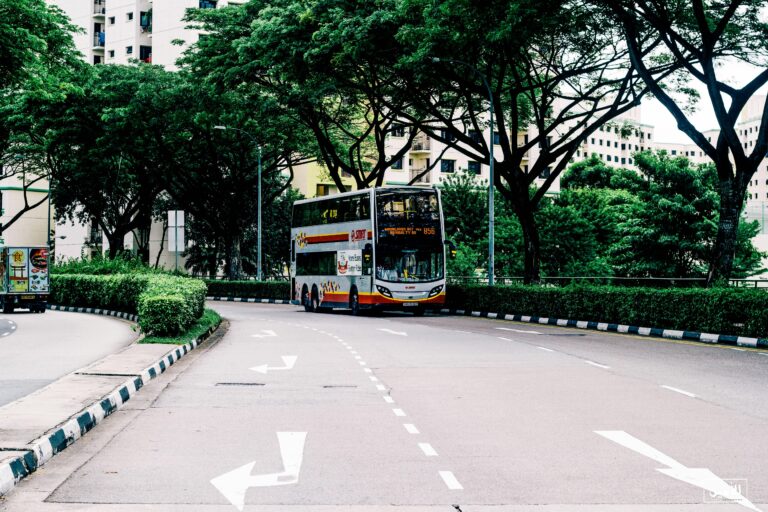
Singapore, often called the “Lion City,” has earned renown for maintaining high safety and security standards. The city-state’s low crime rates, efficient law enforcement, and proactive community initiatives contribute to its reputation as one of the safest places in the world. This article explores the various aspects of safety and security that make Singapore a secure haven for residents and visitors alike.
Read more articles here: https://learntodrivesg.com/
Low Crime Rates
Singapore consistently earns recognition as one of the safest countries globally due to several factors: stringent laws, effective policing, and a societal emphasis on law-abiding behavior contribute to this achievement. Violent crimes are particularly rare in Singapore, reflecting its robust safety measures.
Efficient Law Enforcement
The Singapore Police Force (SPF) plays a pivotal role in maintaining law and order. Known for its professionalism and quick response times, the SPF utilizes advanced technology like surveillance cameras and predictive analytics to prevent and solve crimes swiftly. Neighborhood police posts (NPPs) ensure accessibility of police services to all residents, fostering a sense of security in communities.
Stringent Laws and Penalties
Strict laws and severe penalties for various offenses characterize Singapore’s legal system. The country imposes tough regulations on drug trafficking, vandalism, littering, and other crimes. The deterrence effect of these laws significantly contributes to the overall low crime rates. For instance, certain drug-related offenses carry the death penalty, while caning is prescribed for offenses such as vandalism and certain sexual crimes.
Community Involvement
Community involvement is integral to Singapore’s safety strategy. Programs like the Community Policing System (COPS) and Neighbourhood Watch Groups (NWGs) empower residents to actively safeguard their communities. These initiatives promote a culture of collective responsibility and vigilance among citizens, enhancing overall safety.
Emergency Preparedness
Singapore places a strong emphasis on emergency preparedness through organizations like the Singapore Civil Defence Force (SCDF). Responsible for fire response, rescue operations, and emergency medical services, the SCDF conducts regular drills and public education campaigns to ensure citizens are well-prepared for emergencies. Investment in resilient infrastructure and technology further strengthens Singapore’s ability to manage natural and man-made disasters effectively.
Cybersecurity
In today’s digital age, cybersecurity is critical to national security. Singapore has established itself as a regional leader in cybersecurity through initiatives led by the Cyber Security Agency of Singapore (CSA). The CSA oversees national cybersecurity strategies, protecting critical information infrastructure, enhancing awareness, and fostering a robust cybersecurity ecosystem.
Counter-Terrorism Measures
Given its strategic location and global connectivity, Singapore maintains vigilant counter-terrorism measures. These include stringent border controls, intelligence-sharing with international partners, and comprehensive security measures at key installations and public spaces. Awareness campaigns like SGSecure prepare citizens to respond effectively to potential terrorist threats, ensuring national security.
Public Health Security
Public health security is another cornerstone of Singapore’s safety framework. The country’s healthcare system demonstrated resilience during the COVID-19 pandemic through rigorous health screening, contact tracing, and vaccination programs. These efforts safeguard public health and ensure the well-being of Singapore’s population.
Crime and Penalties in Singapore
Singapore’s legal system is renowned for its strict laws and stringent penalties, aimed at maintaining public order and safety. Here are key aspects of Singapore’s legal framework and penalties:
- Drug Offenses: Possession, trafficking, or consumption of illegal drugs, including cannabis and heroin, incur severe penalties. Trafficking large quantities of certain drugs can lead to the death penalty.
- Vandalism: Vandalism, including graffiti, is severely punished with fines, imprisonment, and caning, a significant deterrent.
- Littering: Strict anti-littering laws impose fines and community service for offenders.
- Public Order Offenses: Offenses such as rioting and unlawful assembly result in fines, imprisonment, or both.
- Corruption: Both the giver and receiver of bribes face substantial fines and imprisonment.
- Traffic Offenses: Offenses like speeding and driving under the influence lead to fines, demerit points, and potential license suspension.
- Cybercrime: Offenses such as hacking and online fraud are addressed under the Computer Misuse Act, with penalties of fines and imprisonment.
- Sexual Offenses: Offenses such as rape and sexual exploitation incur imprisonment, caning, and other penalties.
- Capital Punishment: Singapore retains the death penalty for offenses such as drug trafficking and murder.
- Juvenile Offenders: Rehabilitation-focused measures apply to juvenile offenders, though serious offenses can lead to detention.
Conclusion
Singapore’s reputation as a safe and secure nation is upheld by its comprehensive approach to safety and security. Through effective law enforcement, stringent legal measures, community engagement, and advanced technological solutions, Singapore maintains high standards of safety for its residents and visitors. The government’s proactive stance on cybersecurity, counter-terrorism, public health security, and crime deterrence underscores its commitment to safeguarding Singapore’s well-being and maintaining its status as a global leader in safety and security.






